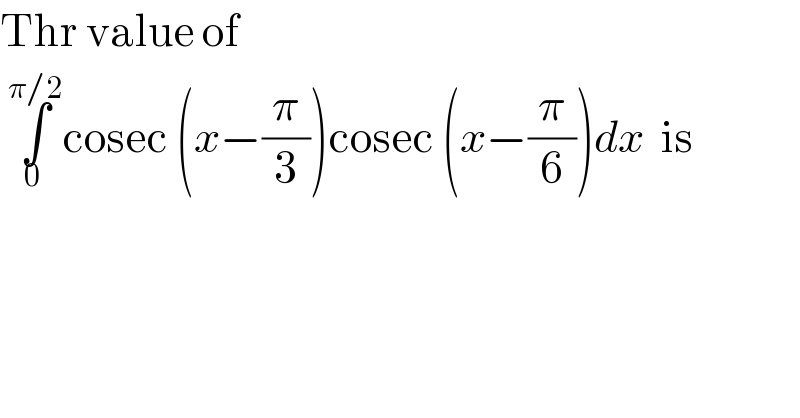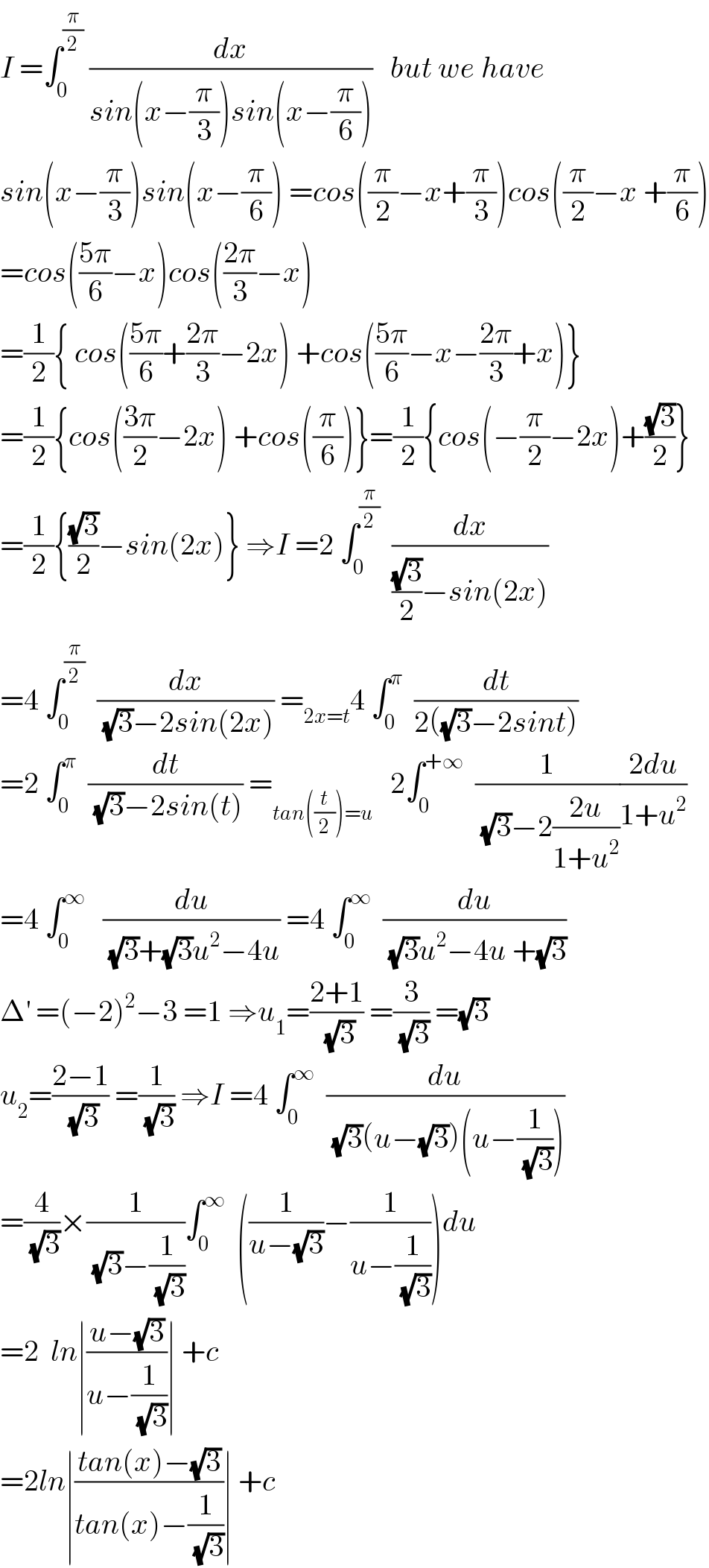
Question and Answers Forum
Question Number 75924 by benjo last updated on 21/Dec/19

Commented by mathmax by abdo last updated on 21/Dec/19

Commented by benjo last updated on 22/Dec/19

Commented by abdomathmax last updated on 23/Dec/19

| ||
Question and Answers Forum | ||
Question Number 75924 by benjo last updated on 21/Dec/19 | ||
 | ||
Commented by mathmax by abdo last updated on 21/Dec/19 | ||
 | ||
Commented by benjo last updated on 22/Dec/19 | ||
 | ||
Commented by abdomathmax last updated on 23/Dec/19 | ||
 | ||